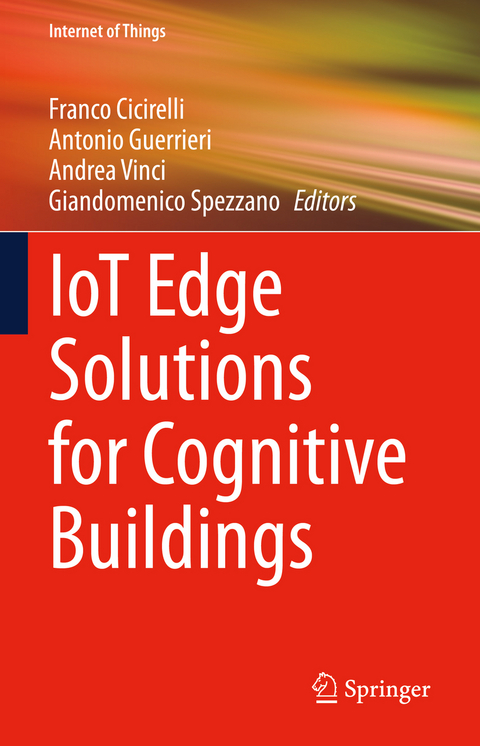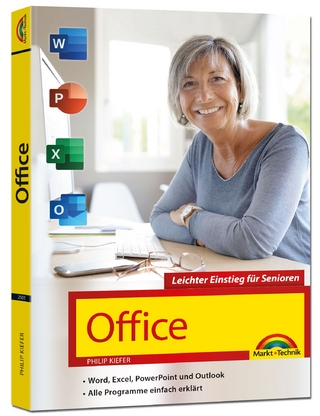
IoT Edge Solutions for Cognitive Buildings
Springer International Publishing (Verlag)
978-3-031-15159-0 (ISBN)
This book outlines the promise of the field of the Cognitive Internet of Things when it is applied to cognitive buildings. After an introduction, the authors discuss the goals of cognitive buildings such as operation in a more efficient, flexible, interactive, intuitive, and sustainable way. They go on to outline the benefits that these technologies promise to building owners, occupants, and their environments that range from reducing energy consumption and carbon footprint to promoting health, well-being, and productivity. The authors outline technologies that provide buildings and equipment with the ability to collect, aggregate, and analyze data and how this information can be collected by sensors and related to internal conditions and settings, energy consumption, user requests, and preferences to maintain comfort and save energy. This book is of interest to practitioners, researchers, students, and professors in IoT and smart cities.
Franco Cicirelli is a researcher at the ICAR-CNR in Italy since December 2016. He was a Research Fellow at the University of Calabria in Italy from 2006 to 2015. His research work mainly focuses on software engineering tools and methodologies for the modeling, analysis, and implementation of complex time-dependent systems. Research topics include agent-based systems, distributed simulation, distributed systems, real-time systems, internet of things and cyber-physical systems. Antonio Guerrieri is currently serving as a researcher at the ICAR-CNR, Italy. He spent six months as a researcher at the Telecom Italia WSN Lab in Berkeley, California, and one year at the Clarity Centre, UCD, Ireland. He has been involved in several research projects and is a co-Founder of the SenSysCal S.r.l. His research interests include high-level programming methodologies and frameworks for wireless sensor and actuator networks, building monitoring and control, body sensor networks, design and development of smart environments, and internet of things. Giandomenico Spezzano is a Research Director at the Institute of High Performance Computing and Networking of the Italian National Research Council (ICAR-CNR) Rende, Italy. Adjunct Professor at the Faculty of Engineering of the University of Calabria. He is the author of 4 books and more than 220 scientific articles published in books, conference proceedings and international journals. His research interests include parallel architectures, peer-to-peer computing, multi-agent systems with collective behavior (swarm intelligence), large-scale cyber-physical systems, parallel and distributed data mining, pervasive computing and internet of things, and edge computing. Andrea Vinci is a researcher at the ICAR-CNR, Italy, where he has worked in various positions since 2012. His research interests include internet of things and cyber-physical systems. In these areas, he worked on the definitions of platforms and methodologies for developing cyber-physical systems, on swarm-based distributed algorithms for the efficient control of urban drainage, and on data mining techniques for ambient intelligence.
Chapter 1. COGITO: a platform for developing cognitive environments.- Chapter 2. CLOUD, FOG and EDGE COMPUTING for IoT-ENABLED COGNITIVE BUILDINGS.- Chapter 3. Edge caching in IoT smart environments: benefits, challenges and research perspectives towards 6G.- Chapter 4. Needs analysis, protection, and regulation of the rights of individuals and communities for urban and residential comfort in Cognitive Buildings.- Chapter 5. Real case studies towards IoT Based Cognitive Environments.- Chapter 6. Audio analysis for enhancing security in cognitive environments through AI on the Edge.- Chapter 7. Aggregate Programming for customized building management and users preference implementation.- Chapter 8. IoT control based solar shadings: advanced operating strategy to optimize energy savings and visual comfort.- Chapter 9. Room occupancy prediction leveraging LSTM - An approach for cognitive and self-adapting buildings.- Chapter 10. Edge Intelligence against COVID-19: a Smart University Campus case study.- Chapter 11. Structural Health Monitoring in Cognitive Buildings.- Chapter 12. Development of Indoor Smart Environments leveraging the Internet of Things and Artificial Intelligence: a case study.- Chapter 13. Human-centered Reinforcement Learning for Lighting and Blind Control in Cognitive Buildings.- Chapter 14. Intelligent Load Scheduling in Cognitive Buildings: A Use Case.- Chapter 15. Cognitive Systems for Energy Efficiency and Thermal Comfort in Smart Buildings.
| Erscheinungsdatum | 13.12.2022 |
|---|---|
| Reihe/Serie | Internet of Things |
| Zusatzinfo | XII, 348 p. 159 illus., 141 illus. in color. |
| Verlagsort | Cham |
| Sprache | englisch |
| Maße | 155 x 235 mm |
| Gewicht | 697 g |
| Themenwelt | Mathematik / Informatik ► Informatik |
| Technik ► Elektrotechnik / Energietechnik | |
| Technik ► Nachrichtentechnik | |
| Schlagworte | AI and Machine learning for Cognitive Buildings • Cognitive IoT • Green New Deal for Buildings • Innovative Cognitive Applications • IoT-enabled buildings • Self-learning and adaptive systems |
| ISBN-10 | 3-031-15159-3 / 3031151593 |
| ISBN-13 | 978-3-031-15159-0 / 9783031151590 |
| Zustand | Neuware |
| Informationen gemäß Produktsicherheitsverordnung (GPSR) | |
| Haben Sie eine Frage zum Produkt? |
aus dem Bereich


